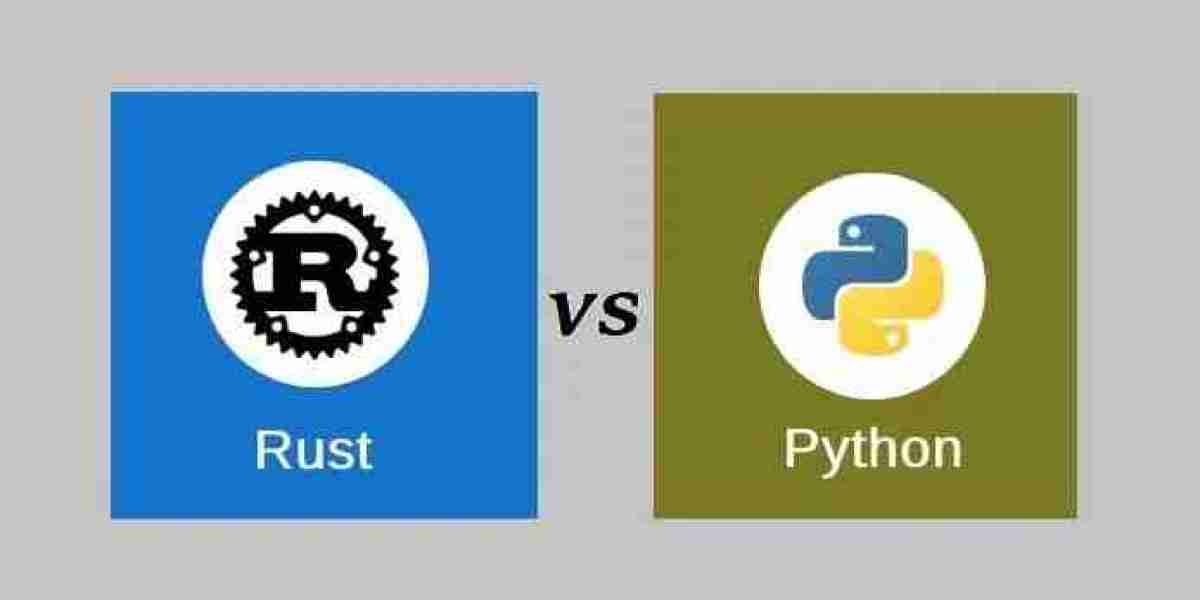Rust is known for its performance, memory safety, and low-level control, while Python is famous for its simplicity, versatility, and ease of learning. In this article, we will explore the differences between Rust and Python, helping you decide which one fits your needs better.
Rust vs Python: Performance
One of the most significant differences between Rust vs Python lies in performance. Rust is a compiled language, which means it translates code directly into machine code. This process makes Rust highly efficient and fast. Rust’s memory management system, through its ownership model, eliminates the need for garbage collection, resulting in minimal runtime overhead.
Python, on the other hand, is an interpreted language. This means Python code is executed line by line, which can introduce performance bottlenecks. While Python is not as fast as Rust, it makes up for this with its simplicity and the ability to easily integrate with libraries and external tools.
Rust vs Python: Memory Management
When it comes to memory management, Rust vs Python takes two completely different approaches. Rust uses its ownership system to ensure memory safety without the need for a garbage collector. Every variable in Rust has a clear owner, and when that owner goes out of scope, the memory is automatically freed. This system prevents memory leaks and ensures that memory is used efficiently.
Python uses a garbage collector to automatically manage memory. This means that Python handles memory cleanup behind the scenes, making it easier for developers to focus on writing code. However, the downside of this approach is that garbage collection can occasionally cause performance issues, especially in large-scale applications.
Rust vs Python: Ecosystem and Libraries
Rust vs Python also differs in terms of available libraries and ecosystems. Python has been around for much longer and boasts a massive ecosystem with libraries for almost every domain. From machine learning and web development to data analysis and automation, Python has a package for almost anything.
Rust, although newer, has a rapidly growing ecosystem. The Rust community has built several libraries and frameworks, particularly in areas like systems programming and web assembly. However, Rust's library ecosystem is not as mature as Python's, and developers may find fewer out-of-the-box solutions for certain tasks.
Rust vs Python: Ease of Learning
Rust vs Python also varies in terms of ease of learning. Python is widely regarded as one of the easiest programming languages for beginners. Its syntax is clean and readable, making it ideal for new developers. Python’s dynamic typing and high-level nature allow programmers to quickly pick up the language without worrying about complex concepts like memory management.
Rust, on the other hand, has a steeper learning curve. Its syntax and concepts, such as ownership, borrowing, and lifetimes, can be challenging for newcomers. While Rust's strict compiler and rigorous checks help prevent bugs and errors, these features can be intimidating for beginners. However, many developers find that learning Rust deepens their understanding of programming concepts.
Rust vs Python: Use Cases
Rust vs Python excels in different types of use cases. Rust is ideal for system-level programming, where performance and memory management are critical. Its use is growing in fields like operating systems, game development, and embedded systems, where low-level control is necessary.
Python shines in web development, data science, automation, and scripting. Its rich set of libraries and ease of use make it the go-to language for rapid development in these areas. Python’s versatility allows developers to build everything from simple scripts to complex machine learning models.
Conclusion: Which Language to Choose?
Choosing between Rust vs Python ultimately depends on your project’s requirements. If performance, memory safety, and low-level control are your priorities, Rust is an excellent choice. On the other hand, if you need a language that is easy to learn, flexible, and has a rich ecosystem, Python should be your go-to option. Both languages offer unique advantages, and understanding these differences will help you make an informed decision based on your specific needs.




